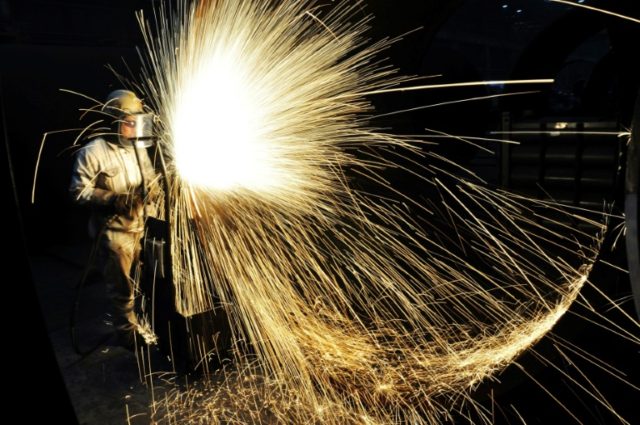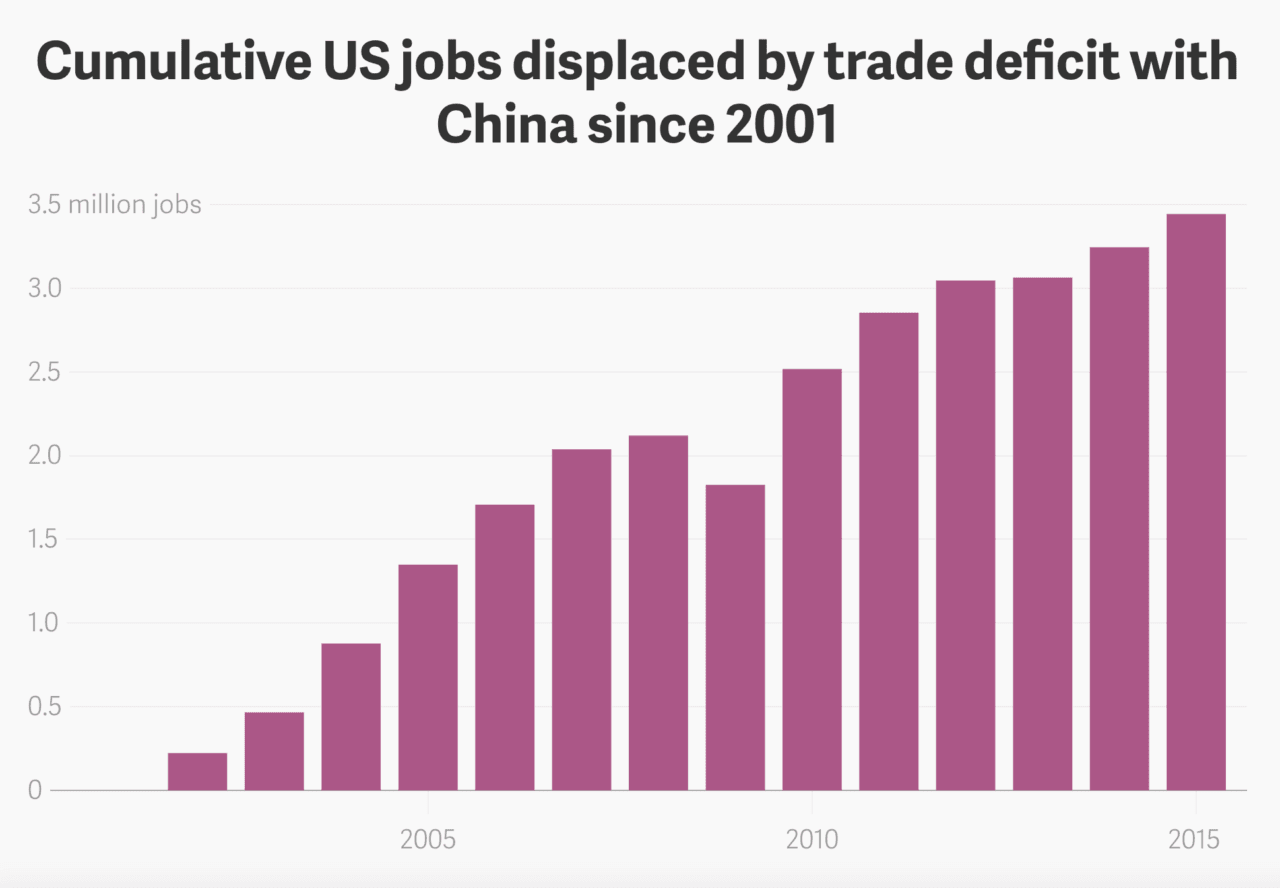President Trump’s tariffs on steel and aluminum are a vital “part of national security” designed to counter China’s dumping of cheap, subsidized steel into the United States – which is “an attack on American jobs,” a representative with the United Steelworkers labor union says.
During a Monday roundtable by the AFL-CIO, United Steelworkers Pennsylvania President Kameen Thompson praised Trump’s 25 percent tariff on imported steel and 10 percent tariff on imported aluminum as necessary to not only save Americans’ jobs from being shipped overseas by free trade but also to keep America safe in the face of war.
“[The tariffs are] part of national security and part of job creation,” Thompson said.
Thompson continued:
I would say, we are at war. We are at war on American jobs. Just to think that China can produce more steel in one month than the U.S. can in one year, it’s phenomenal, it’s something that’s unheard of and that’s an attack on American jobs. Yes, we are at war. But it’s not a trade war, it’s a war on American jobs that are being lost. That’s something that we have to take care of here with these tariffs that are being put in place. [Emphasis added]
Economic Policy Institute Senior Economist Robert Scott praised Trump’s tariffs, saying they “address a critical problem that’s been building up for at least the last two decades.”
“And that problem is massive amounts of overcapacity in steel and aluminum, centered in China and a handful of other countries such as Russia and Vietnam and Korea,” Scott said. “These tariffs are an important opportunity to build a wall, if you would, around that unfairly traded metal that’s distorting global trade and it’s costing us tens of thousands of jobs in the U.S.”
Thomspon said the claims from the mainstream media and the political establishment — both of which are aligned in promoting an agenda of endless free trade — that prices for consumers will skyrocket are overblown and not supported by data.
Thomspon said:
As for a regular consumer, who I deal with on a regular basis, we don’t go out and buy steel by the ton. We don’t go out like we buy like cheese. For a regular consumer to say ‘Well, you know [the price of steel] is going to go up.’ Yes, steel is going to go up in prices because you’re getting a better-made product instead of a product that’s made overseas. [Emphasis added]
If steel went up then that means the cost of maybe auto will go up. But see, since I would say since 2008 steel has been down. So in that case then, if steel is down, then the car prices should be down. As steel fluctuates up, steel fluctuates down, car prices still say the same. So the car price is still going to be $30,000. You know you’re not going to get a discount on the car. [Emphasis added]
When Trump announced his fair trade tariffs on imported steel and aluminum, American workers from across the country thanked the president in a series of videos in which they detailed how free trade had wiped out their jobs and livelihood.
President Trump is set to release a package of $50 billion worth of tariffs and restrictions on Chinese investments, while the U.S. goods trade deficit with China remains at $29.3 billion.
Since 2001, free trade with China has cost millions of Americans their jobs. For example, in a report by the Economic Policy Institute, between 2001 and 2015, about 3.4 million U.S. jobs, were lost due to the country’s trade deficit with China.
Of the 3.4 million U.S. jobs lost in that time period, about 2.6 million were lost in the crippled manufacturing industry, making up about three-fourths of the loss of jobs from the U.S.-Chinese trade deficit.
The Atlas
Free trade, like immigration, is an issue that has come at the expense of American workers. With free trade, foreign markets have been readily opened to multinational corporations, allowing them to offshore American jobs while easily exporting their products back into the U.S.
The Rust Belt has been one of the hardest regions hit because of U.S. free trade with Mexico. In total, about 700,000 U.S. have been displaced, including:
- 14,500 American workers displaced in Wisconsin
- 43,600 American workers displaced in Michigan
- 2,600 American workers displaced in West Virginia
- 26,300 American workers displaced in Pennsylvania
- 34,900 American workers displaced in Ohio
- 34,300 American workers displaced in New York
- 6,500 American workers displaced in Iowa
- 24,400 American workers displaced in Indiana
- 34,700 American workers displaced in Illinois
Meanwhile, since the North American Free Trade Agreement (NAFTA) took effect in the 1990s, at least one million net U.S. jobs have been lost because of the free trade deal. Between 2000 and 2014, there have been about five million manufacturing jobs lost across the country as trade deficits continue soaring.
One former steel town in West Virginia lost 94 percent of its steel jobs because of NAFTA, with nearly 10,000 workers in the town being displaced from the steel industry.
John Binder is a reporter for Breitbart News. Follow him on Twitter at @JxhnBinder.


COMMENTS
Please let us know if you're having issues with commenting.